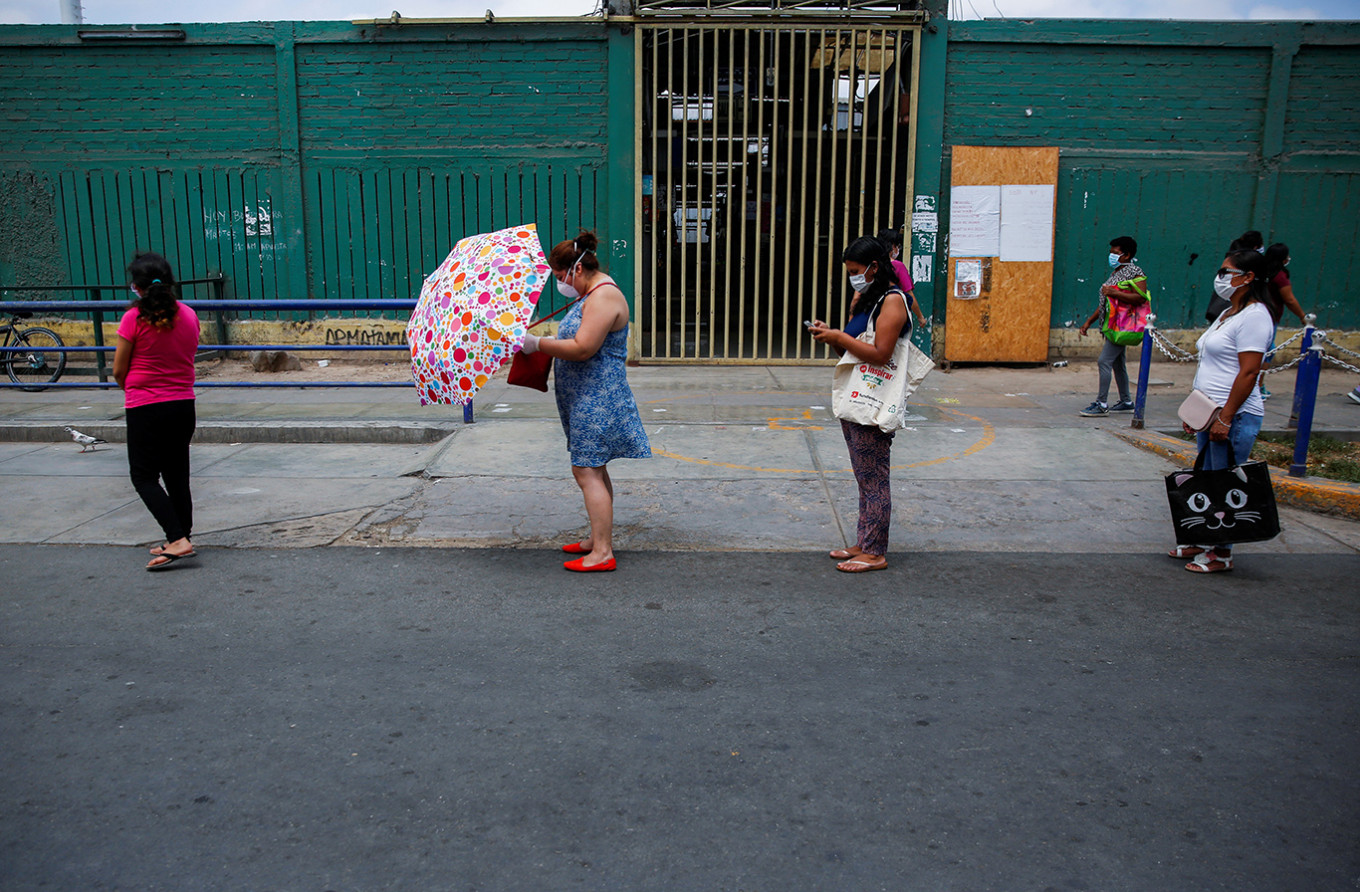Popular Reads
Top Results
Can't find what you're looking for?
View all search resultsPopular Reads
Top Results
Can't find what you're looking for?
View all search resultsPandemic, national disaster and domestic violence
The pandemic has spawned a new lexicon in gender relations.
Change text size
Gift Premium Articles
to Anyone
I
ndonesia’s policies to restrict mobility, although necessary and in line with the Health Quarantine Law, have so far been little informed of the risks of domestic violence. Coupled with increased social and economic pressures, violence against women has increased. United Nations Deputy Secretary-General Amina Mohammed has said that reports from India, the United Kingdom, the United States, France and other countries in every region suggest that since the pandemic broke out, women have suffered even more due to the extra financial and social stress caused by radical disruption of social and protective networks.
The pandemic has spawned a new lexicon in gender relations. For example, reportedly increasing divorce rates in China's quarantine-weary communities have given rise to the term “covidivorce”. As China’s Global Times reported, being stuck at home arouses underlying conflicts in many couples. Divorce appointments have been ticking up and while the trend involved 32 million remarks on China’s social media platform Weibo in March, the industry predicted to rebound first in China after the pandemic is the divorce industry.
In Malaysia, authorities have apologized for stirring a “Doraemon” controversy as women were recommended to dress attractively, avoid nagging and use a high-pitched, sweet voice like the Doraemon cartoon character to avoid domestic violence and preserve household happiness.
Likewise, the posters recommended that women should count from 1 to 20 before responding if they are angry, and not to blame the husband for not helping with housework as part of efforts to prevent domestic violence during the pandemic.
In Indonesia, a viral meme is circulating on social media to expect “coronababies”. The message is that couples may test negative for COVID-19 but the women may test positive for pregnancy. Considered humorous, the meme reflects how vulnerable women are to unexpected pregnancies during the pandemic. The British Pregnancy Advisory Service has warned that lockdowns combined with a lack of access to contraceptives could fuel an increase in accidental pregnancies.
Pregnant women are also at heightened risk when infected by a virus in a pandemic, as the World Health Organization showed, citing previous pandemics.
Read also: Jakarta records spike in domestic violence reports during work-from-home period
Within the first weeks of restricted mobility under the pandemic, the Jakarta Legal Aid Foundation of the Indonesian Women's Association for Justice (LBH APIK) reported 59 cases, or a threefold increase, of domestic violence, rape, sexual assault and online pornography compared to the average daily, from March 16 to 30. The Coalition of Care for Vulnerable Victims of COVID-19 (PEKAD) also reports an increasing burden on women due to their continued household burden including daily shopping at the market, increasing their risk of exposure to the virus.
Globally, one in three women are estimated to have experienced physical or sexual violence in their lifetime. Under lockdowns, women in an abusive relationship not only have increased care work due to school closures but also face a higher threat of violence, sexually transmitted infections and unplanned pregnancies, the World Health Organization has noted.
Hence, as Indonesia has declared the pandemic a non-natural national disaster, it should adopt a gender mainstreaming perspective in a disaster risk reduction (DRR) framework to reduce the risk of domestic violence against women during the pandemic.
Actually Indonesia has six such policies in its DRR framework, which comprise prevention of discrimination against women based on ratification of the UN Convention on Elimination of all forms of Discrimination Against Women, the 2007 Disaster Management Law on protection and priority of vulnerable groups (pregnant and breastfeeding women, children, people with disabilities and the elderly), the presidential decree on gender mainstreaming in planning and evaluation of all policies and programs, a 2008 ministerial regulation on integrating all policies and activities about women’s protection into planning documents, and another ministerial regulation on the collection, analysis and use of disaggregated data based on gender and age in all policies, programs and activities in all provinces, regencies and municipalities.
However, these policies are not yet apparent in the current policies under the pandemic.
While social distancing practices are crucial, the community and service providers as the core support network need to virtually reconnect for online consultation and advocacy for vulnerable groups including women. By this time, emergency responses for domestic violence should be more accessible and available to reach out to quarantined women who are at high risk of domestic violence. Urgently, a new approach to protect women against domestic violence should be planned at all community levels. Quarantines aim to save lives, not endanger them.
***
Lecturer at the School of Social Innovation, Mae Fah Luang University, Thailan










